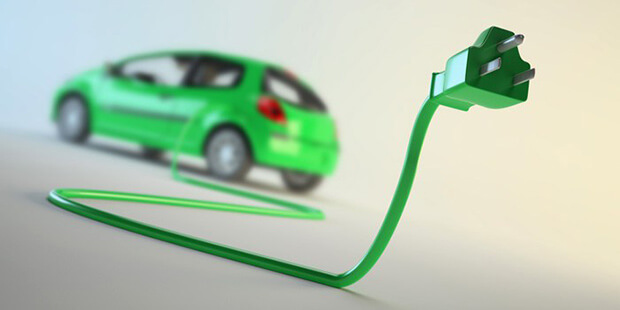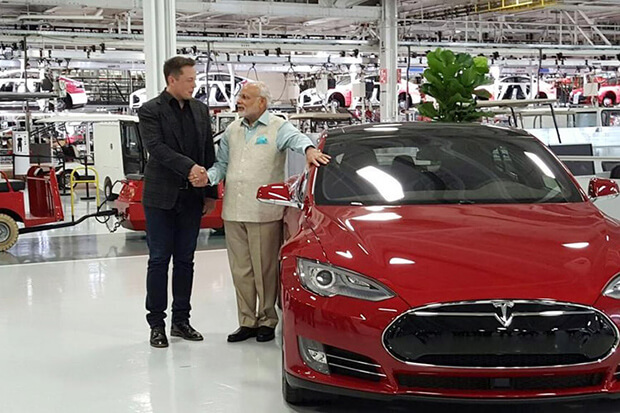India plans to go all electric with green car incentives

The most influential Government think-tank in India has recommended lowering taxes and interest rates for loans on electric vehicles at the same time capping sales of conventional cars.
This signals a huge shift in Indian Government policy and this will affect global trends, as well as India, is one of the world's fastest-growing auto markets.
A government draft is outlining a proposed plan to open a battery plant by the end of 2018 and use tax revenues from all petrol and diesel vehicle sales to set up charging stations for electric vehicles.
The planning body is headed by India’s Prime Minister, Narendra Modi himself and they are aiming to have every vehicle in the country electric by 2032.
 Indian Prime Minister, Narendra Modi with Elon Musk, Founder of Tesla Motors
Indian Prime Minister, Narendra Modi with Elon Musk, Founder of Tesla MotorsThe latest move sees a shift in policy towards electric vehicles and away from the current policy that incentivises both hybrid vehicles and electric cars.
India plans to bypass the hybrid technology altogether and move directly to the push towards sales of plug-in vehicles including subsidies, research funding and rules to discourage fossil-fuel cars in big cities.
There are obviously many obstacles still to be crossed. High battery costs would likely push up car prices in the short term and then there is the lack of charging stations and other infrastructure which will mean car makers may hesitate to make the necessary investment.
One India Government source said:
"If we accelerate electric vehicle growth it will be a disruption for the auto sector and would require investment, but if we're not able to adapt quickly we risk being net importers of batteries. There has been resistance from car makers."
Back in 2015, India launched a new scheme offering incentives for clean fuel technology vehicles. It was hoped that this particular incentive would boost its sales to up to seven million vehicles by 2020.
But despite these incentives as high as 140,000 rupees (€1,988) on some cars the scheme has made little progress.
At this time, sales of electric and hybrid cars only made up a fraction of the three million cars sold in India in 2016.

Author

Justin Kavanagh
Justin Kavanagh is a recognised leader
in automotive intelligence and vehicle
data supply to the entire motor industry.
He has almost 20 years experience in
building systems from the ground up.
As the Managing Director of Vehicle
Management System, he understands the
need and importance of trustworthy and
reliable vehicle history and advice to
both the trade and the public.
Follow me on LinkedIn